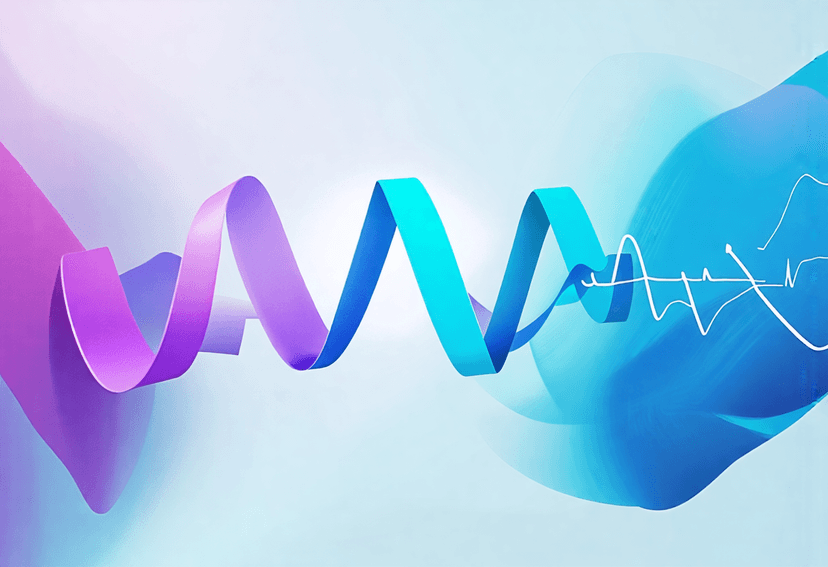
Chemotherapy in the UAE: What Patients Need to Know
17 Jul, 2024
 Healthtrip Team
Healthtrip TeamFacing a cancer diagnosis is overwhelming. The uncertainty and fear can leave you feeling lost and anxious. Starting chemotherapy can be daunting, especially with so many unknowns. The potential side effects can seem intimidating. Let’s break it down together. This blog will guide you through everything you need to know about chemotherapy in the UAE, ensuring you feel informed and confident.
Most popular procedures in India
Chemotherapy
Why Chemotherapy?
Chemotherapy is a crucial treatment option for cancer because it directly targets and destroys fast-growing cancer cells throughout the body. Here are some reasons why it's used:
1. Destroying Cancer Cells: Chemotherapy drugs are designed to kill cancer cells or slow down their growth significantly. This is essential for reducing tumour size and preventing cancer from spreading to other organs.
Wellness Treatments
Give yourself the time to relax
Lowest Prices Guaranteed!

Lowest Prices Guaranteed!
2. Systemic Treatment: Unlike surgeries or localized radiation therapies that target specific areas, chemotherapy works systemically. It circulates through the bloodstream, reaching cancer cells that may have spread to different parts of the body, which is particularly important in cancers that have metastasized.
3. Shrinking Tumors: In cases where tumours are large or located in critical areas, chemotherapy may be used to shrink them before surgery or radiation therapy. This can make these treatments more effective and improve outcomes.
4. Adjuvant Therapy: After surgery or radiation, chemotherapy may be given to eliminate any remaining cancer cells that are too small to be detected. This reduces the risk of cancer recurrence and improves long-term survival rates.
5. Palliative Care: For advanced-stage cancers where a cure is not possible, chemotherapy can help manage symptoms such as pain and discomfort. It improves quality of life by slowing the progression of the disease and prolonging survival.
When is Chemotherapy Recommended?
Deciding when to start chemotherapy depends on several factors, which are carefully evaluated by healthcare providers in collaboration with patients:
1. Type and Stage of Cancer: Different cancers respond differently to chemotherapy. The type of cancer and its stage (how far it has spread) are critical in determining whether chemotherapy is the best treatment option.
2. Treatment Goals: The goals of treatment—whether it's to cure the cancer, control its growth, or provide relief from symptoms—affect the timing and approach to chemotherapy. This is discussed thoroughly with patients to align treatment plans with their preferences and expectations.
3. Patient's Overall Health: The patient's overall health and medical history are considered. Factors such as age, existing medical conditions, and organ function play a role in determining the type and dosage of chemotherapy that can be safely administered.
4. Response to Prior Treatments: If other treatments like surgery or radiation have been ineffective in controlling the cancer, chemotherapy may be recommended as the next step in treatment.
5. Personal Preferences: Patient preferences and values are integral to the decision-making process. Open discussions with healthcare providers ensure that treatment plans are not only medically appropriate but also aligned with the patient's lifestyle and goals.
In essence, chemotherapy is recommended based on a comprehensive assessment of the cancer's characteristics and the patient's individual circumstances. It is a powerful tool in the fight against cancer, tailored to each person's needs to achieve the best possible outcomes in terms of treatment effectiveness and quality of life.
Procedure of Chemotherapy in UAE Hospitals
1. Getting Started: Consultation and Planning
When you begin chemotherapy, you'll first meet with your oncologist. They'll sit down with you to understand your medical history, do a thorough check-up, and discuss what kind of cancer you have and its stage. This consultation is crucial because it helps them create a treatment plan that's just right for you.
2. Preparing for Treatment
Before your first chemotherapy session, there are some tests and checks they'll likely want to do. These can include scans like CT or MRI to see how far the cancer has spread, blood tests to check your overall health, and sometimes a biopsy to get a closer look at the cancer cells.
Based on these results, your doctor will decide which chemotherapy drugs to use, how much you need, and how often you'll get them.
3. How Chemotherapy Drugs Are Given
When it comes to actually getting the chemotherapy drugs into your system, there are a few ways they might do it:
Through an IV: This is probably the most common. They'll place a small tube into one of your veins, usually in your arm, and the drugs will flow directly into your bloodstream.
Orally: Some drugs come in pills or liquid form, which you can take at home or in the hospital.
Injections: For some types of chemotherapy, they might inject the drugs into a muscle or just under your skin.
4. Keeping an Eye on Things
While you're getting treatment, they'll keep a close watch on how you're doing. They'll check your vital signs regularly to make sure everything is going smoothly and catch any issues early.
5. Dealing with Side Effects
Chemotherapy can bring on a range of side effects, and everyone's experience is different. You might deal with things like nausea, hair loss, feeling tired, or being more susceptible to infections. They'll give you medications to help with these and other symptoms, and they'll work with you to manage them as best as possible.
6. Checking In and Adjusting
After each round of chemotherapy, you'll have follow-up visits to see how you're responding. They'll do more tests to see if the treatment is working and if any adjustments are needed to your treatment plan.
7. Taking Breaks and Looking After Yourself
Chemotherapy is usually given in cycles, so you'll have periods of treatment followed by breaks to let your body recover. They'll work with you to make sure you're taking care of yourself during this time, whether it's resting, eating well, or getting support from loved ones.
8. Support Every Step of the Way
Throughout your chemotherapy journey, you'll have a whole team of people looking out for you. Nurses will help manage your symptoms and explain what to expect. Dietitians can give you tips on eating right during treatment. And counsellors or social workers are there to support you emotionally and help you find resources if you need them.
Going through chemotherapy isn't easy, but having a clear understanding of what to expect can make it a bit less daunting. Your healthcare team is there to guide you through each step, making sure you get the best care possible tailored to your needs. Remember, you're not alone in this journey.
Side Effects of Chemotherapy:
Chemotherapy, while effective against cancer, can bring about various side effects that impact patients differently.
b. Hair Loss: Hair typically grows back after treatment.
c. Fatigue: Rest and balancing activities are key.
d. Decreased Appetite: Eating smaller, frequent meals can help.
e. Increased Susceptibility to Infections: Careful monitoring and preventive measures are taken.
f. Anaemia (Low Red Blood Cell Count): Managed with transfusions or medication.
g. Peripheral Neuropathy: Symptoms may improve after treatment ends.
h. Mouth Sores: Medications and good oral care help ease discomfort.
i. Skin and Nail Changes: Skincare routines and protection are important.
j. Cognitive Changes (Chemo Brain): Strategies to cope with memory and concentration challenges.
k. Emotional Distress: Supportive counselling and community resources are available.
Benefits of chemotherapy :
Despite its challenges, chemotherapy offers significant benefits in the treatment of cancer, aiming to control, reduce, or eliminate tumours.
b. Cancer Cell Destruction: Targets and kills cancer cells.
c. Prevention of Spread: Reduces the risk of cancer spreading.
d. Palliative Care: Offers relief from symptoms and improves overall comfort.
e. Curative Intent: Aims to achieve complete remission in some cases.
Chemotherapy aims to treat cancer effectively while managing its temporary side effects with supportive care and treatments tailored to each individual's needs.
Choosing the Best Hospital for Chemotherapy in the UAE
Selecting the right hospital for chemotherapy is paramount for effective treatment and overall patient well-being. The UAE boasts several top-tier hospitals renowned for their oncology departments and comprehensive cancer care services. Here are some of the leading hospitals for chemotherapy in the UAE:
Related Blogs

Healthtrip Guide: Basavatarakam Indo American Cancer Hospital & Research Institute
Explore Basavatarakam Indo American Cancer Hospital & Research Institute with

Healthtrip Guide: Basavatarakam Indo American Cancer Hospital & Research Institute
Explore Basavatarakam Indo American Cancer Hospital & Research Institute with

Comprehensive Cancer Care in Kolkata
Get world-class cancer treatment at HCG Cancer Centre, New Town,

Discover the Future of Healthcare at Yashoda Hospitals Hitec City
Experience world-class medical care at Yashoda Hospitals Hitec City, a

The Role of Surgery in Pancreatic Cancer
Understand the importance of surgery in treating pancreatic cancer

Pancreatic Cancer Treatment Options
Get informed about the various treatment options for pancreatic cancer












